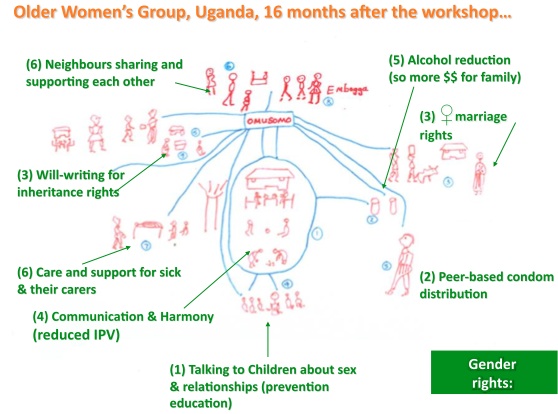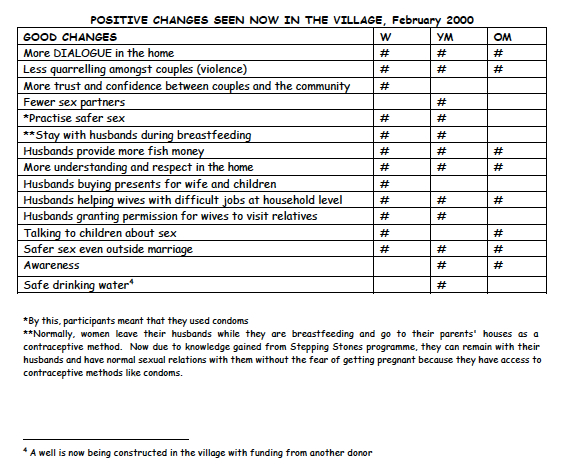What issues does it address
Stepping Stones has been used by many organisations to address a wide range of issues. These are issues which are universal and found in any community anywhere. It reflects the fact that there are many different aspects of our lives that influence our health and well-being. Thus the programme seeks to produce multiple positive outcomes.
The manual is careful not to impose imaginary experiences on participants from elsewhere. Instead it encourages participants to think about their own lived experiences in relation to these issues. Therefore each Stepping Stones workshop is unique, depending on the specific lived experiences of the participants in that particular community, which they choose to discuss. This enables participants to develop their own solutions which are specifically relevant to their own concerns, which belong then to them.
What are Multiple Positive Outcomes?
Two diagrams, from Uganda and from the Gambia, illustrate what we mean by multiple positive outcomes.
Uganda
The diagram below is drawn by older women in 1995, in the first community where the Stepping Stones training workshop took place. The women drew the diagram in response to the open question: “What has happened in this community since the Stepping Stones workshop?” The printed text in green was added later, to show the diversity of the positive outcomes which the women identified.
This diagram is an excellent example of the “multiple positive outcomes” which this programme seeks to produce.
The Gambia
This second diagram comes from an analysis of a participatory evaluation process in the Gambia in 2000, as part of a one year follow up from the workshop.
This shows the different multiple positive outcomes highlighted by each of three of the peer groups (each group interviewed separately) through open questions. This chart maps the extent to which the outcomes mentioned overlap between the three groups.
This provides us with an opportunity to cross-check and validate the outcomes which each group mentioned.
(From: Jarjue, M.S. et al 2000 Participatory Review of changes after a Stepping Stones workshop in an Islamic context, the Gambia, February 2000)

